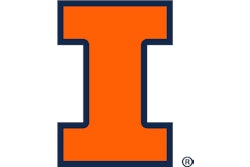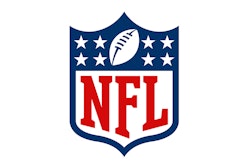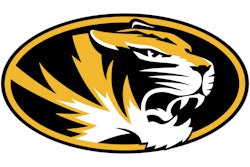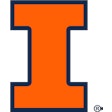Copyright 2017 Gannett Company, Inc.
All Rights Reserved
USA TODAY
Over the past few months, nutritional supplement company GNC has been trying to repair its image and boost slumping sales with a new marketing campaign under a new chief executive.
In December, the company even declared itself to be "One New GNC," helping reboot a brand that has become a staple of shopping malls across the nation.
But some of its products -- and its past -- have gotten in its way and led to conflicts with two high-profile American sports organizations.
In January, GNC's Super Bowl ad was canceled six days before the game amid questions from USA TODAY Sports about GNC's ties to banned NFL substances. Now comes criticism from USA Track & Field about GNC's ties with the USA Track & Field Foundation, a separate nonprofit that provides grants to athletes.
GNC's new interim chief executive, Bob Moran, sits on the board of directors of the USATF Foundation even though his company sells substances that are banned for USATF athletes. GNC also had been listed on the foundation's website as a corporate partner of the foundation -- a listing that was removed after USA TODAY Sports asked questions about it in February.
"USATF last year directly raised its concerns to the Foundation board regarding the Foundation's involvement with GNC due to issues of supplement control and the issues raised in the questions (from USA TODAY Sports)," USATF said in a statement. "We also addressed concerns about USATF's mark or name being affiliated with the Foundation due to our lack of control over the Foundation and the decision regarding GNC. We have continued to raise those concerns and are exploring ways to more clearly differentiate our two independent organizations."
USATF, the national governing body of track and field, said it doesn't select the foundation's board members or approve its business decisions. But it is closely aligned with the foundation, having helped form it in 2002.
Besides Moran, the foundation's board of directors includes USATF chief executive Max Siegel and USATF President Stephanie Hightower, both of whom are ex-officio members. In 2014, USATF received $20,000 from the foundation for the support of elite long-distance runners, according to the foundation's tax forms. The USATF website also has a link directing users to the website of the foundation.
"The foundation is absolutely committed to the rules and principles of clean sports and in no way condones the use of banned substances," said Tom Jackovic, the foundation's executive director. Jackovic also said the foundation does not endorse any products.
Pieter Cohen, a supplements expert and assistant professor at Harvard Medical School, still questioned what kind of message this relationship sends to track and field athletes
"From the U.S. Track & Field position, they should be interested in either distancing themselves from GNC or maybe even better encouraging GNC to not sell the products that would place their athletes' careers at risk," Cohen said.
Supplements controversy
The USATF Foundation gives grants to athletes on the condition that they don't take banned substances. It also has received money from GNC through a program in which GNC customers were encouraged to make small donations to USATF Foundation programs when buying products at GNC stores. Under this program, GNC customers in effect could donate to the track foundation while buying several bottles of DHEA, a steroid hormone that is banned for the same athletes the foundation supports with those donations.
Only a small fraction of the products GNC sells contains substances banned by the NFL and World Anti-Doping Agency, the company said. GNC sells DHEA, which is believed to enhance athletic performance and fight symptoms of aging, though the supporting evidence is not conclusive. Other countries, including Canada, regulate it as a controlled drug. In the USA, it can be purchased over the counter as a supplement, but the NFL, NBA, NHL, Major League Baseball and WADA have banned it. GNC also sells products that include the stimulant octopamine, which is banned for track and field athletes in competition.
DHEA use has led to high-profile suspensions in recent years, including Russian swimmer Yulia Efimova, who received a 16-month punishment after testing positive for it. She said it came in a product she bought at a GNC in California.
But it's not just sales of DHEA that makes the NFL and USATF squeamish about being associated with GNC. The company also has faced allegations that it sold products containing illegal substances that pose a health risk to consumers, including the stimulant DMAA. The attorney general in Oregon is suing GNC, saying, "GNC purposefully undertook to dispose of adulterated, illegal products by shipping them to Oregon and distributing and selling the now-fugitive products to Oregon consumers."
GNC has said the lawsuit is without merit.
In December, the federal government also announced it had investigated products sold at GNC and found problems. "GNC's practices related to ensuring the legality of products on its shelves were lacking," the government said. GNC agreed to pay $2.25 million as part of the agreement to avoid prosecution.
Moran was named GNC's interim CEO in July after the company's CEO resigned amid declining sales and the investigations into products sold by GNC. He was named to the USATF Foundation's board in November 2012, when he was chairman and CEO of PetSmart.
GNC issued a statement to USA TODAY Sports when asked about its ties to the foundation:
"As part of an ongoing commitment to supporting athletic programs in the communities in which we live and work, GNC, led by our Interim CEO Bob Moran who is a former track and field athlete himself, is proud to be a corporate partner to the USA Track & Field Foundation. As a partner, we are able to play a small part in helping the Foundation continue its critical mission to support elite Track & Field athletes and to promote community outreach programs."
Jackovic added he was "not aware of any instance where a foundation grantee failed to uphold his or her eligibility commitments regarding banned supplements."
'Act extremely cautiously'
The foundation is funded by donations and helps support the sport and its athletes, often through grants. Moran and other board members are not paid for serving on it, according to tax forms.
In 2014, the foundation collected $764,000 in contributions and had $717,000 in expenses, including $189,000 for 50 elite athlete grants and the $20,000 to USA Track & Field, according to its most recently available tax form.
While the USATF Foundation is separate from USATF, the U.S. Anti-Doping Agency said national governing bodies should be careful about how they relate to supplement companies.
"We strongly encourage all national governing bodies to act extremely cautiously in this area so as not to create the impression that they endorse or recommend products that are prohibited in sport," said Amy Eichner, USADA's special adviser on drug reference and supplements.
At GNC, Moran also had served on the company's board of directors before being tapped last year to help turn around the company as interim CEO.
Part of that effort included plans to air an ad during the Super Bowl on Fox, a deal the company said it reached in mid-December before the NFL rejected it less than a week before the game. The company spent a significant sum getting the ad ready to air and said the ad had received multiple clearances from Fox before then.
GNC also said it had no hint of any objection to the ad until after USA TODAY Sports asked the NFL players union about GNC's status as a banned company for NFL players.
According to previously circulated NFL advertising guidelines, ads for health or nutrition stores are permitted as long as they don't promote specific supplements, energy drinks or banned substances.
GNC's ad did not promote such products and instead promoted an inspirational message of having the courage to change.
GNC since has threatened legal action against Fox, which declined to comment for this article.
In the meantime, the new marketing campaign continues. Since its Super Bowl cancellation, GNC's "Courage to Change" ad has continued to air elsewhere, including during the Grammy Awards broadcast last month.
"Don't ever let anyone tell you you can't change," the ad says.
Read More of Today's AB Headlines
Subscribe to Our Daily E-Newsletter
Terms and Conditions Privacy Policy



































